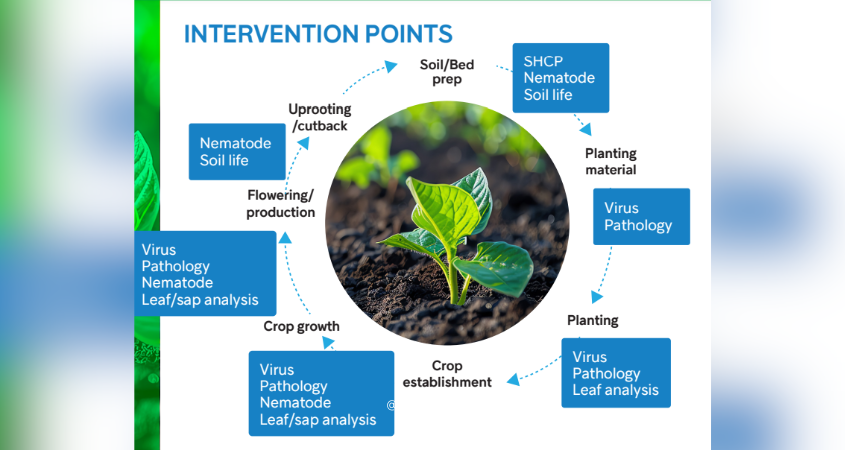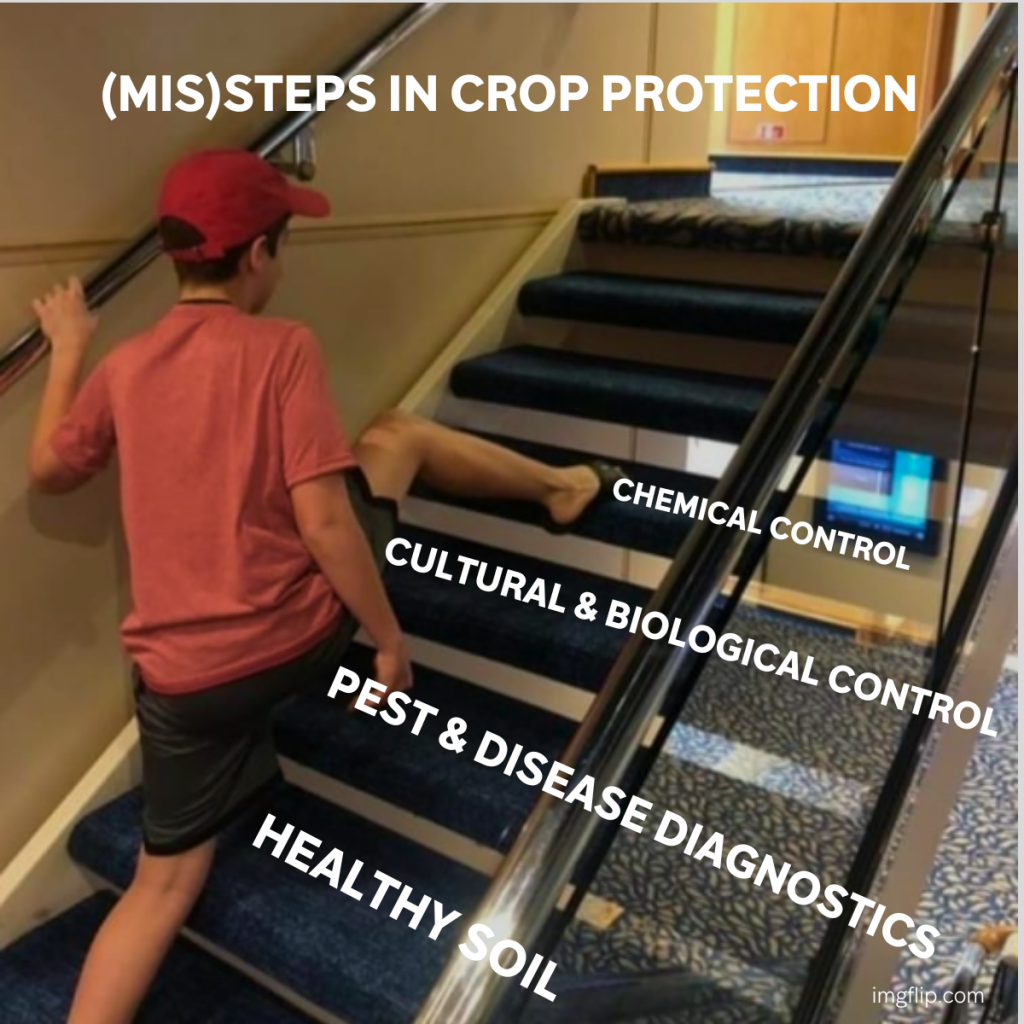
Integrated Crop Management (ICM) offers a comprehensive framework that enables farmers and agronomists to redesign their crop protection strategies sustainably. With ICM, farmers can meet the new market demands of reducing the overall use and risk of chemical pesticides—without sacrificing crop productivity. Here’s how ICM transforms crop protection in line with today’s market challenges:
Healthy crops start with healthy soils. ICM emphasizes regular soil and leaf analysis, providing farmers with precise insights into soil health. Farmers and agronomists can naturally reduce pest pressure and enhance plant immunity by optimising soil fertility and biological activity, leading to fewer pesticide applications and better compliance with regulations.
With stricter limits on pesticide residues, early detection of pests and diseases is critical. ICM integrates nematode, virus, and pathology screening right from the planting stage and throughout the crop life cycle. Identifying potential threats early allows farmers to intervene with minimal chemical inputs, preventing widespread infestations while staying within regulatory guidelines.
ICM reduces dependency on chemical pesticides through the integration of biological controls and cultural practices such as crop rotations and field sanitation. By employing natural predators and cultural methods alongside targeted chemical interventions, farmers can reduce their environmental impact while adhering to EU pesticide regulations and other international standards.

ICM ensures data-driven, targeted interventions at key points in the crop cycle, which helps reduce the need for blanket pesticide applications. Whether during soil preparation, planting, or crop establishment, precise pest and disease diagnostics guide the use of chemicals, ensuring compliance with Maximum Residue Limits (MRLs) and promoting safe, market-ready produce.
As the market shifts toward more sustainable agricultural practices, ICM helps farmers reduce input costs, improve crop resilience, and transition away from chemical-heavy methods. This benefits the environment, improves food safety, and opens new market opportunities for farmers adopting sustainable approaches.
In conclusion, the Integrated Crop Management (ICM) framework is designed to help farmers and agronomists meet sustainability challenges head-on. It provides the tools and insights to reduce chemical usage, comply with stringent regulations, and grow farming businesses sustainably. For personalized guidance and tailored ICM solutions that fit today’s market realities, please get in touch with our experts at support@cropnuts.com.
Grow more with less.
#CropProtection #SoilHealth #SustainableFarming
Order our services and get to know how to improve your soil for better yeilds.